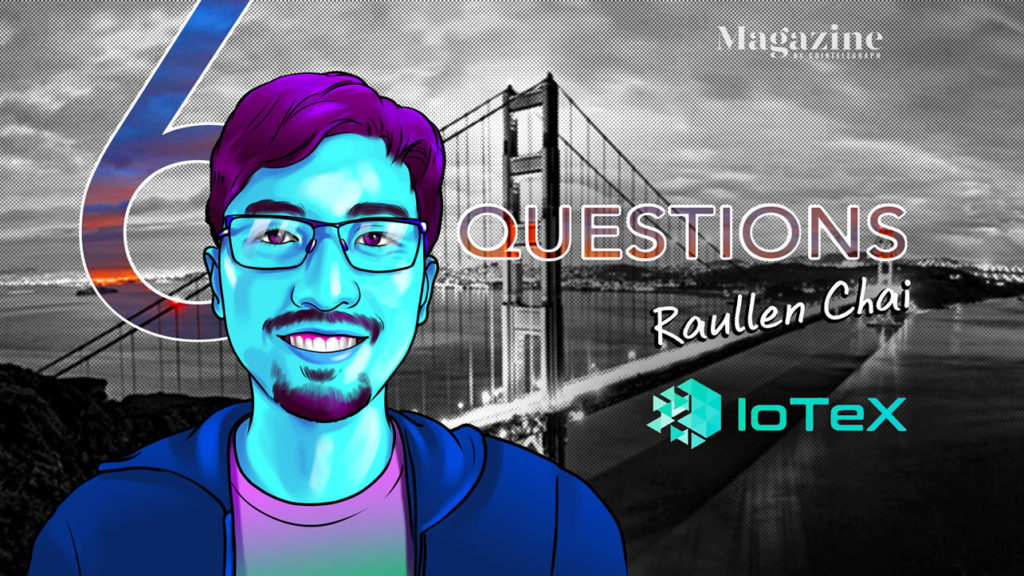Each week we ask the buidlers in the blockchain and cryptocurrency sector for their thoughts on the industry… and we throw in a few random zingers to keep them on their toes!
Each participant then gets to remove one blockchain question — and a personal one — and they can substitute in two of their own for the next victim.
This week our 6 Questions go to Raullen Chai, CEO of IoTeX.
IoTeX is a privacy-focused platform for the Internet of Things, and Raullen is the co-founder. IoTeX combines blockchain and secure hardware to enable privacy-protecting smart devices, such as Ucam.
Raullen received his Ph.D. in Cryptography from the University of Waterloo, where he also came across the Bitcoin whitepaper — cue: rabbit hole. Prior to IoTeX, Raullen was a tech lead at Google and most recently served as Head of Cryptography R&D at Uber.
Raullen is passionate about using technology to protect our privacy and create a more equitable world. He’s also an open source advocate and an active member of IACR, IEEE, and IIC.
1 — What has been the toughest challenge you’ve faced in our industry so far?
The diversity of the blockchain industry is a blessing and a challenge. We are a diverse industry of technologists, policymakers, business leaders, academics, and investors. The same melting pot of perspectives that drives our industry to new heights also requires us to coordinate on a broad scale, especially to bring blockchain to mass adoption. It’s challenging, but nothing in life that is worth anything is easy.
2 — What’s the most interesting place you’ve ever visited, and why?
Jerusalem has an irreplicable atmosphere. It has so much history as one of the oldest cities in the world, captured and recaptured 44 times throughout its 4,000 year history. I personally believe we achieve the best version of ourselves by evolving through new experiences — Jerusalem embodies this in physical form.
3 — What’s a problem you think crypto has a chance to solve, but hasn’t been attempted yet?
We are at the cusp of a blockchain-powered “own your data” revolution. For years, we have seen headline after headline about our data being breached, sold, and manipulated. But we had no alternatives.
Now decentralized solutions are being introduced that not only rival the user experience of their centralized counterparts, but also allow us to own and control our data as a digital asset.
4 — What do you like to do in your free time?
I love to spend time with my family, read, run, and meditate — anything that lets me reflect and capture life’s lessons. These days, I also enjoy toying around with new smart devices in my house. A bit of market research and home renovation at the same time!
5 — If you could have any career you wanted, what would you be doing?
I’d be a professor at a top university. I look back fondly on my Ph.D. days, and paying it forward to the next generation of innovators and entrepreneurs is something I value greatly. To match the modern times, we need modern curriculums that emphasize concepts like “privacy by design” and the ethical use of technology.
6 — What were the biggest crime trends you saw in 2019/20?
Criminals are reaching us through our devices. Botnets, SIM swaps, and security camera hacks made headlines in 2019 and made us all wonder: “do my devices really work for me?”
Blockchain, as a trusted foundation for device identity and data authorizations, will play an important role in protecting our devices.
Raullen substituted questions 3 and 5 with two new ones for our next buidler…
How did you get into the crypto industry and what drives you to stay?
Who is your idol? What would you ask them if you had the chance?
Editorial Staff
China mocks US crypto policies, Telegram’s new dark markets: Asia Express
